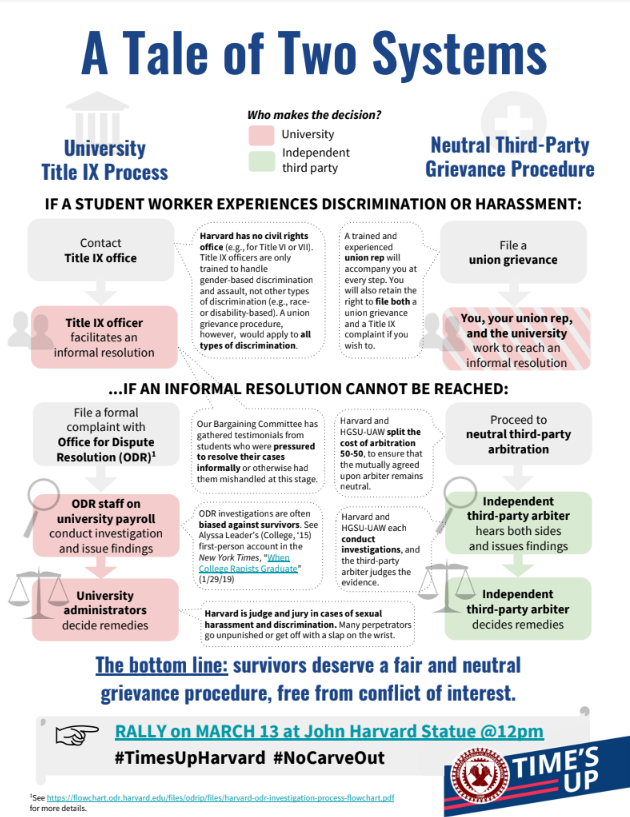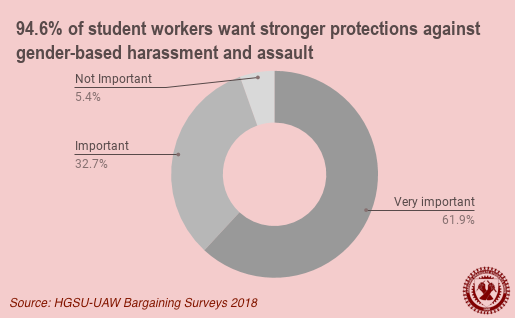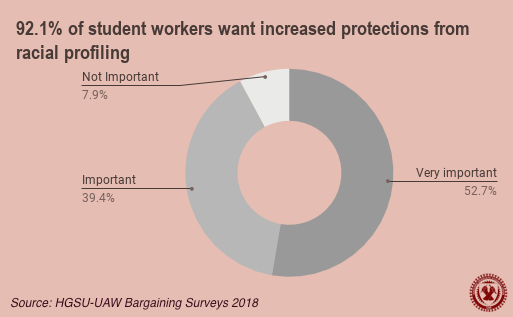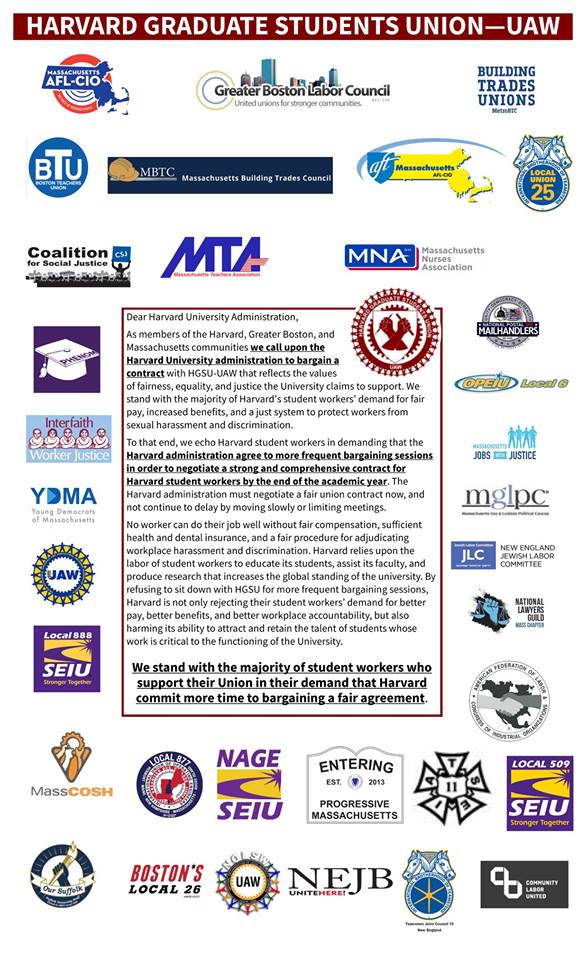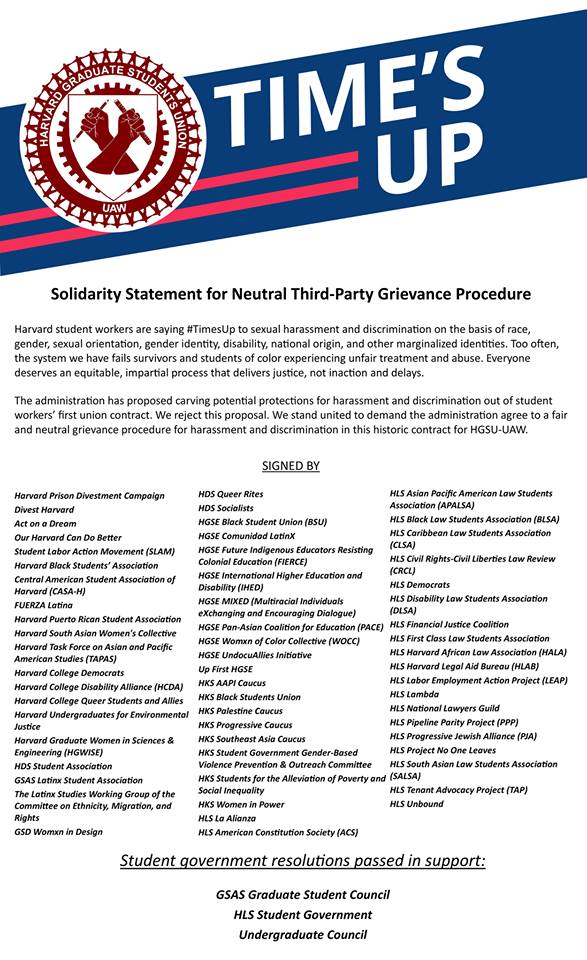Nocarveout
Protected: #NoCarveOut
What’s #NoCarveOut? The administration has proposed carving potential protections for harassment and discrimination out of student workers’ first union contract. We reject this proposal. We stand united to demand the administration agree to a fair and neutral grievance procedure for harassment and discrimination in this historic contract for HGSU-UAW. Our union is calling for a #NoCarveOut in our first collective bargaining agreement with Harvard University.
Testimonials
Resources
A Tale of Two Systems
Frequently Asked Questions
| Harvard Title IX Office and Office for Dispute Resolution (ODR) | A neutral third-party grievance procedure |
|
| Formal investigations are adjudicated by | A university-appointed panel of faculty and administrators | An independent third-party arbitrator, whose fee is split 50-50 between the university and the union |
| Complainants can first pursue informal resolution | Yes | Yes, with assistance of union rep if desired |
| Complaints have access to interim measures such as change in work station | Yes | Yes |
| Handles cases of sexual harassment and assault and gender-based discrimination |
Yes | Yes |
| Handles cases of non-gender-based discrimination, such as race-based or disability-based discrimination | Not specified or necessarily trained to do so | Yes |
| Handles cases of non-identity based discrimination, including bullying and intimidation | Not specified or necessarily trained to do so | Yes |
| Who has recourse | All members of the Harvard community, including anyone who has a complaint against a Harvard affiliate. |
All student workers |
Yes! As discussed in this article from the Chronicle of Higher Education, an
international student worker at the University of Connecticut used a grievance procedure in the contract of GEU-UAW Local 6950 to seek recourse for sexual harassment after the UConn Title IX process had ruled against her case. As a result of independent arbitration, she was able to stay in the country and finish her graduate studies. We believe that a grievance procedure in our contract would provide Harvard student workers with the same protections.
The administration is not opposed to a neutral grievance procedure, per se—what they have proposed at the table is a proposal where discrimination and harassment are carved out from this procedure. In their proposal, student workers cannot seek recourse with a grievance procedure for issues of non-discrimination, for example gender-based and sexual harassment and discrimination! In fact, in their proposal student workers are able to apply this procedure to every other article in our contract, for example contract violations relating to compensation, workload, safety, healthcare, childcare, training, and appointment notifications. However, the omission of non-discrimination clauses from application of the grievance procedure would leave our student workers (and the broader university community) unprotected, and would demonstrate to harassers that their unlawful actions can continue with impunity.
In other union contracts we have examined, it is normal for grievance procedures to cover all provisions in a contract. However, the administration is arguing for a carve-out for sexual harassment and discrimination protections. This is not normal, and we believe it is unjustifiable to single out the most vulnerable members of our community to be excluded from protections we’re fighting to provide to all student workers. We demand #NoCarveOut.Attend and tell your friends to attend the #TimesUpHarvard rally on March 13 at 12pm in front of the John Harvard Statue! Please RSVP for updates and to commit to telling Harvard that #TimesUp and we demand #NoCarveOut!
Also, please get in touch with us! We bring in members or their statements to the room to talk about institutional failings on this issue. You can write a social media post. You can attend our next action. You can organize with our Time’s Up Committee. Above all, spread the word in your communities!
Typically, the union and the university would each conduct separate investigations. There is nothing in our proposal that prevents the university from using their established fact-finding processes to bring the facts to an arbitration hearing. The union’s investigation procedure, again, serves to empower the survivor with more control over the investigation by making sure their case is represented fairly.
You may hear claims:Our grievance procedure would would “skip over” the investigatory process for addressing harassment and discrimination complaints.

